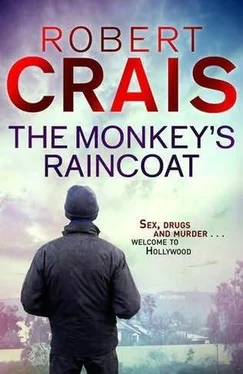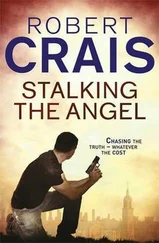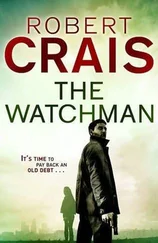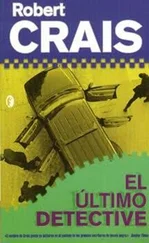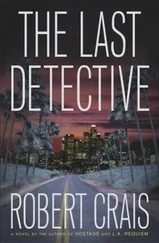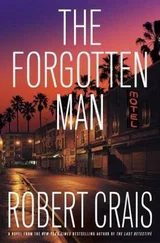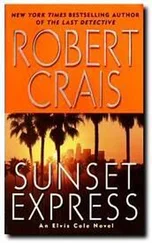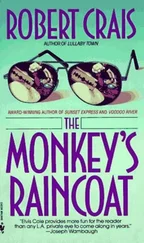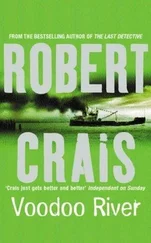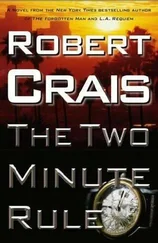Robert Crais - The Monkey
Здесь есть возможность читать онлайн «Robert Crais - The Monkey» весь текст электронной книги совершенно бесплатно (целиком полную версию без сокращений). В некоторых случаях можно слушать аудио, скачать через торрент в формате fb2 и присутствует краткое содержание. Жанр: Криминальный детектив, на английском языке. Описание произведения, (предисловие) а так же отзывы посетителей доступны на портале библиотеки ЛибКат.
- Название:The Monkey
- Автор:
- Жанр:
- Год:неизвестен
- ISBN:нет данных
- Рейтинг книги:4 / 5. Голосов: 1
-
Избранное:Добавить в избранное
- Отзывы:
-
Ваша оценка:
- 80
- 1
- 2
- 3
- 4
- 5
The Monkey: краткое содержание, описание и аннотация
Предлагаем к чтению аннотацию, описание, краткое содержание или предисловие (зависит от того, что написал сам автор книги «The Monkey»). Если вы не нашли необходимую информацию о книге — напишите в комментариях, мы постараемся отыскать её.
The Monkey — читать онлайн бесплатно полную книгу (весь текст) целиком
Ниже представлен текст книги, разбитый по страницам. Система сохранения места последней прочитанной страницы, позволяет с удобством читать онлайн бесплатно книгу «The Monkey», без необходимости каждый раз заново искать на чём Вы остановились. Поставьте закладку, и сможете в любой момент перейти на страницу, на которой закончили чтение.
Интервал:
Закладка:
I walked back to the Corvette, pulled the top up, and climbed into the passenger side. I was armed, supplied, and ready for siege. I could hang in as long as it took. Even until lunch.
Seven minutes later the dark blue Nova with the bad rust spot on its left rear fender rolled past and pulled to the curb about six cars ahead of me. Same two Chicano guys. Curiouser and curiouser. The driver got out and trotted across the street to disappear behind the banana trees. He was back there a long time. Maybe Pygmies got him. Just when I got my hopes up he came back, still scowling, still trying to look like Charles Bronson, still not making it. It’s tough to look like Charles Bronson when you got no chin. He walked into the street in front of an elderly lady driving a big bronze Mercury. She had to stop. He scowled at her. Tough, all right. I heard his car door slam, then a minute later faint Mexican music. These guys were good.
A couple minutes before nine, two cars eased up out of the garage, a little metallic-brown Toyota Celica and a green LTD. About nine-fifteen a beige Volvo sedan turned in. Kimberly Marsh wasn’t driving and probably wasn’t hiding in the trunk. At ten-fourteen the fat guy came out with his little dog. I held my fire so as not to tip the guys in the Nova. The little dog didn’t have any better luck than last time. At ten fifty-five the mail was delivered. Kimberly Marsh got a couple more letters. At six minutes before noon the Nova cracked open again and a different guy walked back past me on the sidewalk, heading toward Barrington. This one was taller, with a relaxed face and prominent Adam’s apple. This one, maybe you could talk to. I scrunched down onto the floor, no easy feat in a ’66 Corvette, and counted to forty before I looked up. Thirty-five minutes later he came back, whistling and carrying a white paper bag with grease stains at the bottom. Tacos or burritos, one. I ate a salami sandwich, followed it with a turkey, and drank a warm Budweiser. Bud holds up better warm than any other beer. Great for that tailgate party when you’re on stakeout.
At ten minutes after three, a dirty red Porsche 914 double-parked in front of the Piedmont Arms and a good-looking kid the size of a tree got out and went to the mailboxes. Kimberly Marsh’s mailbox, in particular. Then I had him. The beach picture in Kimberly Marsh’s dresser drawer. Six-three. Two-fifteen. Brown-almost-blond hair and toothpaste-commercial features. I lifted myself up in the seat and tried to see the guys in the Nova. They didn’t seem to be paying any attention, the driver talking and gesturing and the passenger nodding his head and the Mexican music going with a lot of trumpet. The big kid cleaned out the box, dug through the bin, then went back to his car. Sonofabitch, stay with the Nova or follow the kid? The Mexican driver was still explaining something with his hands. The passenger fired the wadded-up white paper bag into the shrubs around the apartments. They turned up the music. Marimbas. I went with the kid.
He cruised back toward Barrington, then left on San Vicente to Wilshire and the San Diego Freeway, north. I stayed three or four cars back up through the Sepulveda Pass into the valley and onto the Ventura Freeway, east. He took the Woodman exit and headed to Burbank Boulevard where he pulled into an auto parts store, running in like he was in a hurry. I swung the Corvette into the Shell station across the street and stopped by the pay phone. I kept one eye on the parts store, fed money into the phone, and called Joe Pike.
A man’s voice said, “Gun shop.”
“Joe Pike, please.”
Five seconds. Ten, tops. “Pike.”
“It’s warming up. You feel like work?”
I could tell Pike covered the mouthpiece. When he took his hand away the background at his shop was quiet. “What do you want me to do?”
“There’re two Mexicans sitting in a dark blue Chevy Nova at 412 Gorham, just above San Vicente in Brentwood. Bad rust spot on the left rear fender behind the wheel well. I want to know where they go.”
“You want me to clean and dress them after?”
“Just the address.” With Pike you had to be careful. You never knew when he meant it.
I followed my man back down Woodman to the freeway again, up and east until the Universal City exit, then down to the boulevard and climbed almost at once into the hills above Universal Studios. The streets there are old and narrow, built back when hill streets were poured cement and curbed for cars with high, skinny wheels. The houses are pink and yellow and gray and white, stucco and wood, old Spanish and new Ultramodern, little places jammed together on tiny lots, some bare, some shaded with old, gnarled trees and knotted vines. The 914 pulled into a small wood and stone contemporary on the mountain side of the street. I continued past around the curve, then reversed in someone’s drive and parked at the curb.
I took the. 38 out of the glove box and clipped it onto my waistband over my wallet. I got out and pulled on the jacket, then dug around under the seat until I found a roll of nickels. I slipped the nickel roll in my right pocket and walked back to the house.
The 914 was ticking in a little carport dug into the side of the mountain. The flat-roofed house sat on top of the garage and spilled to the right, nestling in an ivy bed as did so many houses in Los Angeles. There was a big plate glass window to the right of the door and a dormer window a little beyond that. The landscaping was uneven and shabby. Dead vines twined with live; lonely Saint Augustine runners purchased in bare spots along the unmaintained slope, outlining just as lonely sprigs of ice plant and cactus. Everything looked dusty: the 914, the carport, the brick steps leading up to the house, the house, the plants, the bugs crawling on the plants. Classy.
I crept up the steps to the door and listened. Murmurs, maybe, but impossible to tell if it was people or TV. I left the stoop and went to the right, creeping along on all fours under the big window and hoping the local rent-a-cops didn’t pick now to cruise by. I raised my head and looked. Living room. Big and empty and open all the way through to the back of the house. There was a kitchen in the back on the left and a freestanding fireplace just to the right of the big window. A shabby couch covered with something that looked like a bedspread stood next to the kind of bookshelves college kids make out of boards and cinder blocks. No books; just a stereo and some records and a big aquarium with green sides and too many plants and green around the water line. In the back, off the kitchen, there was a round dining table with spindly legs and two chairs. Newspaper sections were spread across the table, pinned there by a glass, a quarter filled with something I couldn’t identify. I was staring at the glass when Kimberly Marsh walked out of the kitchen and into the living room without a stitch of clothes. When she saw me she said, “Hey!” so loud I could hear her through the glass.
I waved at her and smiled. Then the front door opened and the Son of Kong appeared.
14
Up close, he was shorter than I had guessed, but his thighs and calves were thicker than in the picture and there was maybe a little more muscle across his chest. He’d changed clothes. His shirt was off, and he was wearing a pair of red gym shorts, so old and faded I couldn’t make out the name of the school. He was barefoot. There was a four-inch crescent-shaped scar on the front of his left shoulder and two long ugly zipper scars bracketing his left knee. The girl appeared in the doorway behind him, holding a sheet around herself. There were stains on the sheet. I said, “Hi, Kimberly. My name’s Elvis Cole. I want to talk to you about Morton Lang.”
She said, “Larry.”
Читать дальшеИнтервал:
Закладка:
Похожие книги на «The Monkey»
Представляем Вашему вниманию похожие книги на «The Monkey» списком для выбора. Мы отобрали схожую по названию и смыслу литературу в надежде предоставить читателям больше вариантов отыскать новые, интересные, ещё непрочитанные произведения.
Обсуждение, отзывы о книге «The Monkey» и просто собственные мнения читателей. Оставьте ваши комментарии, напишите, что Вы думаете о произведении, его смысле или главных героях. Укажите что конкретно понравилось, а что нет, и почему Вы так считаете.
